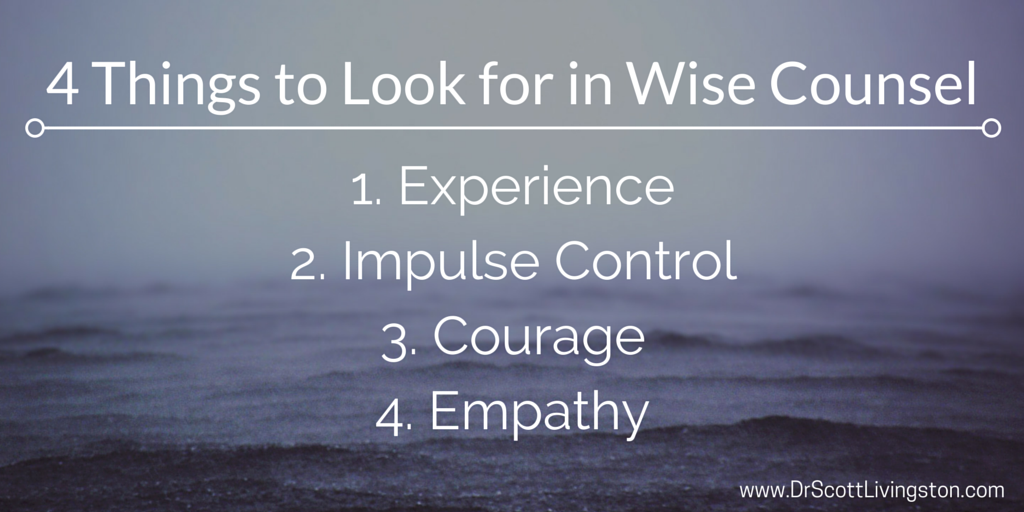In every organization, there are sometimes big changes and it can be hard to maintain emotional balance through each situation. You may be thinking, “Sure, it is easy to use the tools you mention when things are going well, but what happens when things go bad?” Just because there are changes that may affect your position, it does NOT require that it affects your emotions in a negative way.
Several situations could be categorized as difficult for leaders to work through: downsizing, merging, restructuring, relocating, new leadership, project failure, ethical and moral failure, just to name a few. Basically, any situation involving a change that does not give you a positive feeling. These situations don't have to be awful, but they encompass any kind of change that takes you out of your normal routine, which can make them difficult.
When there has been a breakdown in your company, it doesn’t feel good. Tensions are high and people are on edge emotionally. Realizing the emotion exists and not allowing the negativity to drag you down is the skill. This is emotional resilience. Bad things are going to happen.
How can you as a leader work on your own resilience to be able to lead others to see a brighter day ahead?
The first step in being a resilient leader in times of tension and complexity is to be aware of and manage your emotion. In an issue of Leadership Quarterly, Laura Little, Janaki Gooty, and Michelle Williams take on the topic of "the role of leader emotional management." The authors studied 163 leaders and their followers and concluded that when followers perceive that the leader was managing emotion, focusing on meeting expectations, and creating a future, followers felt better about the leadership being provided. Conversely, when followers perceive that leaders modulate or suppress their emotion, there is a lack of leadership and job satisfaction on the part of the follower.
What can you do as a leader to create better leadership in times of tension and complexity? How can you focus on meeting expectations while creating hope and a future for your followers when times are tough?
Here is a simple acronym that can help you stay in CHECK during difficult situations:
Consider the Situation
Take note of what's going on and how it is affecting you, your relationships, and your team. Can you describe the situation clearly and objectively, then identify the emotion it brings up and why? Are your emotions creating false expectations that need to be managed?
Hear from Others
Who are two or three people you trust that can speak into the situation? Identify individuals inside and outside of what's going on that can help you think and act productively as you figure out what to do. Don't spend too much time doing this, or else you become subject to the opinions of too many people and fall into a pit of gossip and negativity, which brings us to our “E."
Eliminate Negativity
This is easier said than done but necessary. Pessimism indicates that there's absolutely no hope or no solution to what's going on, and that's just simply not true. Whether it's coming from yourself or from others, be sure that what you are hearing and thinking will be constructive and productive. Martin Seligman, past president of the American Psychological Association tells us we need to develop a “positive explanatory style." This is not “The Power of Positive Thinking” we all have heard about. It is much deeper than this. Seligman says, “What you think when you fail is crucial.“ How you explain things to yourself when they don’t go your way is the difference between helplessness and being energized.
Create a Plan - Organize and Carry Out
You've thought about it and talked about it, now it's time to decide what you will do about it. Start with the outcome you hope to have and work backward, documenting the steps you need to take to reach that outcome. The key here is to describe what success looks like to you before you implement the plan.
Keep Your Head Up - Stay Consistent, Present, and Motivated
We know it's not going to be easy, but no matter what happens you have the ability to take a deep breath, stay positive, and keep going. What are some things you can do to remove yourself from what's going on, clear your head, and rejuvenate yourself to stay in the game?
HOMEWORK
Think about this acronym and how you can apply to a difficult situation you are facing. Write CHECK on a note and stick it somewhere you can see it as a reminder of this process. When you see it, think about how you can apply it to the things causing tension for you and your organization.





















